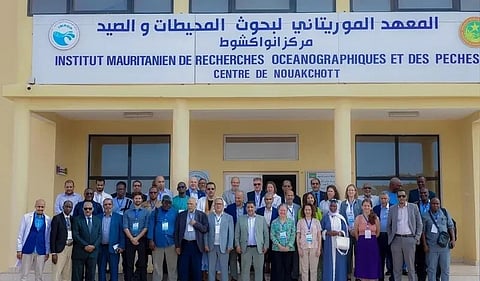

The workshop was attended by 60 participants from across the sub-region.
Global Roundtable on Marine Ingredients
The initiative Global Roundtable on Marine Ingredients (GRT) has published a new report summarizing the conclusions from its latest workshop titled Transforming the Small Pelagic Fish Value Chain in West Africa: Maximizing the Value of the Catch, held in Nouakchott, Mauritania, in July 2025.
The report, which provides a comprehensive summary of the presentations, discussions, and conclusions, calls for an "urgent" shift from a model focused on raw material exports of these species to one that prioritizes value-added processing and regional cooperation.
More specifically, the report proposes implementing coordinated regional governance, improving infrastructure, and adopting public policies aimed at promoting the direct human consumption of these fish.
The workshop was attended by 60 participants from across the sub-region, including representatives from local communities, governments, international organizations, private sector actors, research institutions, and civil society.
The event was organized by the GRT, the Mauritanian Institute for Oceanographic and Fisheries Research (IMROP), and the Mauritanian Small Pelagics Fishery Improvement Project (FIP).
The Fisheries Committee for the Eastern Central Atlantic has stated that five stocks are overexploited and four are fully exploited. One of the most striking cases occurred in 2023, when unusually high temperatures caused the absence of sardines south of Cap Blanc.
"The West African sub-region faces declining fish stocks due to overfishing and climate change, alongside economic competition and shifting consumer preferences. Without strengthened regional institutional cooperation, we will face enormous difficulties," alerted Árni M. Mathiesen, Independent Chair of the Global Roundtable on Marine Ingredients.
For these reasons, the Chair of the CECAF-North and scientist at IMROP, Cheikh Baye Braham, noted: "Faced with these challenges, scientific and regional management of migratory stocks is essential. The implementation of management plans, investment in data monitoring, and the promotion of the ecosystem approach to fisheries appear to be priorities. Finally, the sustainable development of fishmeal and fish oil industries must be reconciled with West African food security."
The Global Roundtable on Marine Ingredients assured it will continue working with regional and international stakeholders and will monitor the implementation of the recommendations.
